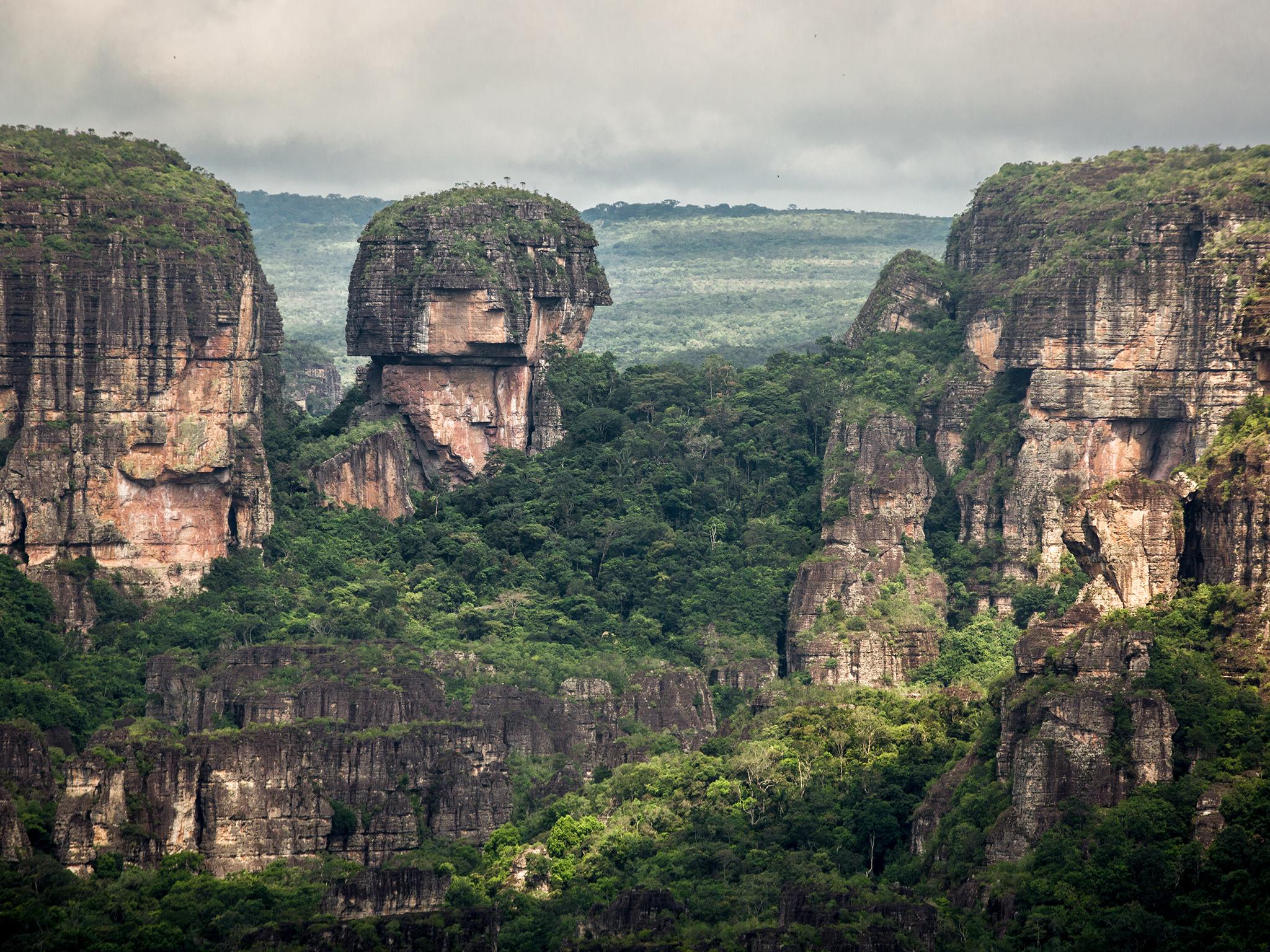Colombian national park becomes largest protected rainforest and new world heritage site
'This is a very important milestone for the Amazon and for forest conservation globally'

Colombia’s Serrania del Chiribiquete has been declared the world’s largest tropical rainforest national park following decades of efforts by environmental experts and conservationists.
The park, which is home to nearly 3,000 animal and plant species, has been expanded by more than 50 per cent – an area equivalent to the size of Northern Ireland.
Its forests provide a home to rare and iconic species including jaguars, manatees and vulnerable brown woolly monkeys.
Chiribiquete’s remote location and years of armed conflict in the region meant that close scientific study of it has been difficult, but the park management thinks it contains at least 300 varieties of birds and another 300 species of butterflies.
The region’s biodiversity results from its key location at a point where four distinct geographic regions meet – the Amazon, Andean, Orinoco and Guyanas.
As a result, Unesco has also declared the park a world heritage site in recognition of its “outstanding universal value” both for nature and people.
“This is a very important milestone for the Amazon and for forest conservation globally. It is also a defining moment for the protection of key ecosystems in Colombia,” said Mary Lou Higgins, director of WWF Colombia, which supported the efforts to expand the park.
“Chiribiquete is very special for its biological, cultural, hydrological and archaeological value, holding rock art and visual records of extraordinary magnitude. It is also of vital importance to indigenous groups, some of whom remain uncontacted today, or live in voluntary isolation.”
Colombia’s forests are threatened primarily by deforestation to make way for agriculture and settlement expansion, but climate change is piling additional pressure on the region.
As the newly expanded park covers areas with some of the highest deforestation rates in the country, environmental groups hope it will prevent the timber and illegal crop trade from expanding.
Mike Barrett, executive director of science and conservation at WWF, said: “The Amazon is home to a huge range of unique and amazing species and the expansion of this park by the Colombian government is an important step towards protecting it and the incredible biodiversity it is home to.”
Originally declared a protected area in 1989 when it covered 1.3 million hectares (5,019 square miles), the park was expanded to almost 2.8 million hectares (10,810 square miles) in 2013.
The latest expansion has added an extra 1.5 million hectares to its already considerable area, ensuring that previously underrepresented ecosystem types are covered by its protections.
Colombian president Juan Manuel Santos welcomed Unesco’s decision to designate Chiribiquete a heritage site, declaring it “great news for Colombia”, according to Colombia Reports.
To celebrate the decision and formalise the extension of the park, the president announced his intention to visit the site on Monday.
In addition he vowed to boost the country’s conservation budget with an extra $525m (£398m) to “protect and defend our environment”.
Join our commenting forum
Join thought-provoking conversations, follow other Independent readers and see their replies
Comments
Bookmark popover
Removed from bookmarks